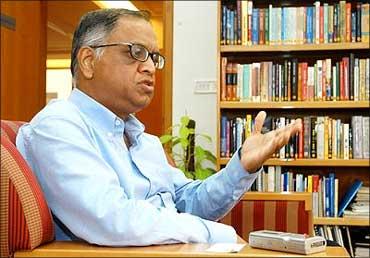See that little baby in the arms of a beggar? See those eyes looking blankly? He has been sedated. He has been rented out. He could be your child.
This is a real case and it happened in Bangalore, the city touted as the IT capital of India.
A seven-month-old baby of a working couple who relied on their ayah—recruited from an employment agency, and hence thought to be above board—was used for beggary. The unscrupulous nanny would pack off the tiny tot with beggars for Rs 100 a day, while she settled down to a quiet afternoon in front of the TV set.
Begging is big business here and in some cities doctors help amputate limbs to make the emotional blackmail more potent. Children are often kidnapped. These are usually from poor families.
This time an educated couple is in the forefront. The mother who worked for a multinational company returned home to find her son missing. The nanny audaciously told her that he too was out on work. For three weeks this had been going on. Several questions need to be raised about the work culture and careerism. I don’t see why a woman has to give up everything once a baby is born, but biologically a child needs the mother more at this stage. As long as women are the only ones who can reproduce – and for now we will leave out the experiments of pregnant men – then there is some responsibility to be shouldered. The father can attend to other chores, if a woman feels she does not want to be left with role-playing, but her duty is towards the baby. A man does not produce milk.
This lady had obviously weaned the infant away, but there are other dimensions. Why do cities that boast of getting ahead in life not have basic facilities? Can offices not have special baby rooms if they have rooms that lie vacant for weeks until there is some special conference? Why are there not enough crèches run by accredited organisations that will take responsibility?
Nuclear families are important because it helps new families grow up. However, I am sure a parent of the parents or a relative would be happy to help. Since there is a lot of movement to other cities, it is possible that no family members is around. I am afraid this won’t appeal to a one-track feminist mind but I think the woman can take a few months off or work from home. In this information age where you rarely meet people, it is not a far-fetched idea. When the child is slightly older the father can swap roles to make things on par, if it is of such importance, though I wonder how women who cannot trust men with their kitchens, would trust them with a baby…
This couple is moving abroad, and it must have been planned earlier. They are not filing a police case and want to remain anonymous. I can understand their hesitation. But one nanny losing a job from one organisation won’t solve the issue. I dread to think what would happen had the child been a girl. This is not to say that a boy cannot be abused sexually. A girl is just so much more vulnerable.
A seven-month old has been the victim not only of a greedy nanny but of the new social mores that have canonised go-getting. The couple too is a victim. We all are and the only way out is to out our rusting new ideas.
